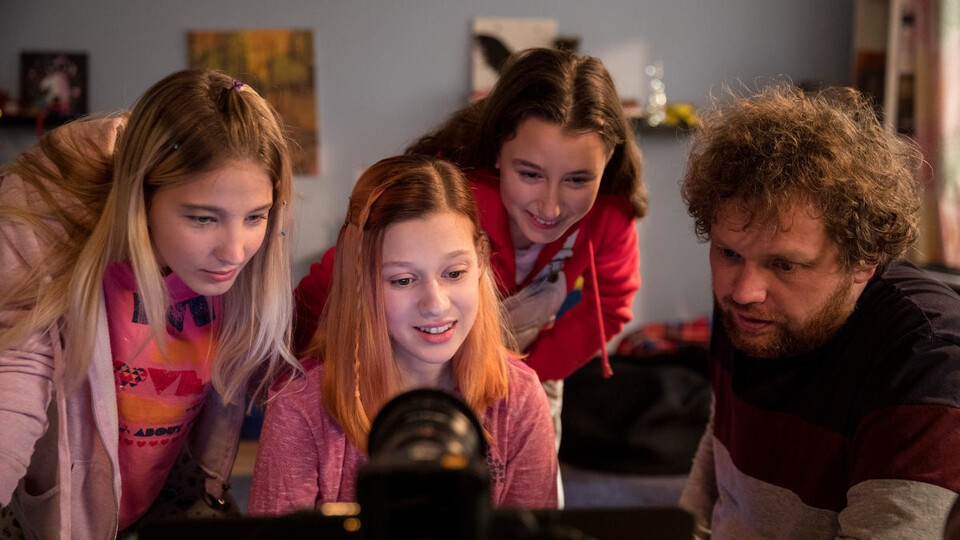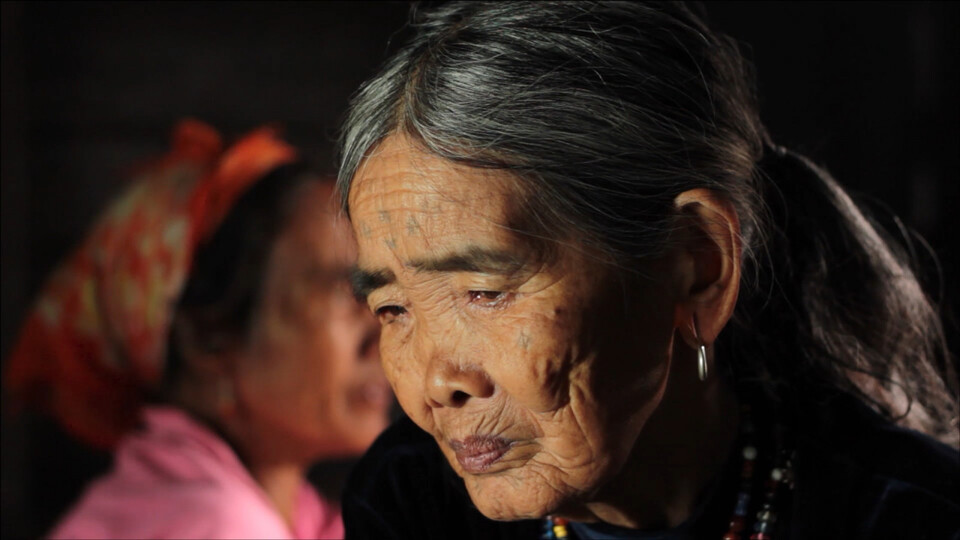The story of Gorbachev as a Shakespearean tragedy
This year, IDFF Ji.Hlava presents Russian director Vitaly Mansky’s new film Gorbachev. Heaven, which views the aging Gorbachev as a modern King Lear. The festival in Jihlava is also preparing a Tribute to Vitaly Mansky, in which his films Under the Sun (2015) and Putin’s Witnesses (2018) will be screened as well.
You already made one documentary about Gorbachev – exactly twenty years ago – and that was a part of the trilogy Red Tsars: Presidents of Russia. Why did you decide to return to Gorbachev after such a long time?
First, one small clarification – the company that distributed my films abroad took three of my documentaries that have nothing to do with each other and joined them under one title. The film I made about Gorbachev twenty years ago has no connection to my new film. Although both feature the same protagonist and both were made in cooperation with the screenwriter Alexander Gelman, they are different films created in different time periods with different ideas. While the first film was exclusively about Gorbachev, the new one isn’t as much about him as it is about time.
Was it hard to get to Gorbachev?
Yes. Regardless of certain problems in personal communication with him, we forged a close relationship, which he then took advantage of to make a long series of rejections citing his age, his health, and the fact that he has nothing more to say. However, I used his arguments against him – it is his age, his health, and his claim that he has nothing left to add that make up the fabric of my film, which captures the state of affairs at the present moment, when Gorbachev is knocking on heaven’s door, so to speak, and Russia, which rejected that which he once offered it, sees him essentially as an enemy, a traitor, and an antihero.
Werner Herzog also made a documentary about Gorbachev in 2018, called Meeting Gorbachev. Herzog, however, approached the architect of Perestroika praisefully, as the person he has to thank for the reunification of Germany, the fall of the Berlin Wall, and the end of the Cold War. Is that why you filmed an intentionally different, shall we say more Russian, perspective of Gorbachev?
I admit that Herzog’s film was one of my motivations for returning to Gorbachev after so many years. When Werner started making his documentary, I was very happy about it. I love his films and his ability to reinterpret the great art of human history and human destiny. I thought that it would put a nice full stop after all the films about Gorbachev. But the film surprised me a bit because it reminded me of a school history lesson. I think someone with Herzog’s talent could have aimed higher. When I saw that Herzog used the footage that we had lent him from our twenty-year-old documentary in the very conclusion of his film, I felt there was a need for me to show how I perceive Gorbachev’s story, which is on the level of a Shakespearean tragedy or a Greek drama. I wanted to create the tragedy of King Lear outside of the context of concrete historical events. I thank Herzog for inadvertently prompting me to return to my hero.
Why is the domestic perspective of Gorbachev so different from that of the rest of the world? While the world considers him a hero, in Russia he’s seen as a traitor…
Unfortunately, the Russian view of him is dictated by Kremlin policy, which is built on the cultivation of the complex of a defeated nation and on the pursuit of new challenges, much like the ideology of Nazi Germany. For years, the Kremlin has purposefully declared that the collapse of the Soviet Union was a great catastrophe, the fall of the Berlin Wall was a betrayal of Soviet global interests, and the breakup of the Warsaw Pact was a victory for NATO. Every day, the Russian media writes, “NATO is expanding to the East, we’re surrounded by enemies, he betrayed us, Gorbachev betrayed us.” It streams in on people every day from all sides. When you live in this kind of atmosphere, it’s not possible to resist it. You would have to have great strength and intellect to face up to the propagandistic pressure of the media.
Is freedom even characteristic for Russia? Do Russians actually want it? You ask Gorbachev that in your film, and he deems that kind of question onanistic…
I think that’s the key question. I placed the conversation with Gorbachev about freedom and how natural it is to the Russian mentality at the very beginning of the film because it’s a pivotal moment. In reality, my film plays out in the first ten minutes, where I ask what freedom means to Russians. The rest is just an appendix. I believe people are born free, and it’s the society they grow up in that strips them of their freedom. Mowgli was born a man – the wolf pack made him a wolf.
Gorbachev is very evasive in his answers to your questions about the breakup of the USSR and his current relationship with Putin, unlike in your documentary twenty years ago. What’s your explanation for this?
I think it’s very important that my new film shows the doubts and the process of looking for answers. A film generally doesn’t have to provide answers. It has to ask questions. When it has the answers, it’s no longer art – it’s propaganda. In art, the search for an answer itself is much more valuable than a concrete answer. Moreover, Gorbachev isn’t actually aware of his role in history. Unfortunately, this is an unquestionable fact. He truly doesn’t understand what processes resulted from his short term in government. But that doesn’t diminish his historical role. A man has the right not to be aware of his role in history – that’s natural. I think it’s important that in our film Gorbachev is not an absolute hero. We see his weaknesses and his strengths, his romanticism, his naivety, and even his simplicity. It’s not a glorified portrait, but rather a depiction of a real being. This is perhaps the most realistic portrait of a politician I have seen in cinema.
“Gorbachev isn’t actually aware of his role in history.”
The only things Gorbachev likes to reminisce about in the film are his wife Raisa and his childhood. That’s his heaven. It seems like he lives only in his memories now. Am I correct in assuming that this is where your film’s title comes from? Gorbachev. Heaven?
I leave every viewer the right to their own interpretation. I have mine. It’s very simple, and it has no connection to anything Gorbachev says, does, or thinks. I believe that to speak something aloud is to make it true, and I want the word “heaven” to be next to the word “Gorbachev”. That is my wish. That’s all.
What does Mikhail Gorbachev represent to you personally?
For me, he’s the man who gave me the happiest years of my life. Maybe they were the hardest years in terms of living conditions – I had to work the night shift as a labourer so that I could stand in the queue for milk in the morning, and I didn’t always manage to get any – but they were years of hope. Hope is the most precious thing a person can have. The Putin years, which propaganda labels as a time of plenty, were years of lost hope, and that is why they are the most tragic years of my life.
It’s very sad to see that a man who made such a major contribution to freedom and democracy in the world is dying abandoned, moreover, in a house which he’s simply borrowing. Someone who could be regarded as a victor in life is in fact defeated. How do you explain that?
Gorbachev lives in Russia, in that space of disinformation. He doesn’t use the Internet, but he does subscribe to 32 newspapers, which he reads daily. And every day, it’s like someone spits in his face. Due to his age and circumstances, he lives in a protected compound where no one can simply drop by and visit. And due to his illness, he can’t even leave. He is actually in a prison, though no one imprisoned him. He finds himself isolated, which makes the whole situation even more tragic.
You yourself have been living in Latvia for a number of years, in Riga. Last December, in support of the oppositionist Alexei Navalny, you made an appearance in front of the headquarters of the Russian Federal Security Service and were arrested. Did this lead to any repercussions with the authorities?
Unfortunately, there were some unexpected consequences for me. At the time, I didn’t attach the same emphasis to my actions that they later received. I did it spontaneously. I went to Lubyanka Square in Moscow expecting to see thousands of protesters there. I was convinced that when the country learned that the Federal Security Service was murdering citizens, it would spark mass protests. But the square was empty. I was angry and surprised, and suddenly I wanted to do something. So I did, and they arrested me and wrote up a report stating that they were not my individual actions, but rather that I was the ideological initiator behind all two-hundred people who were protesting in Lubyanka Square over the next 72 hours. This implies that I was the organizer of a group action, which is a far more serious violation of the law. It all took place last year, but my trial will be this December. Unfortunately, the lawyers I designated to represent me weren’t allowed to attend the first hearing. But they can’t do anything too terrible to me because I’d never broken the law before, and the first infraction can’t have any serious consequences. The state wants to keep people in a state of weightlessness, where they can’t feel the ground beneath their feet. That’s how they deal with anyone who criticizes their actions.
“For me, he’s the man who gave me the happiest years of my life. Maybe they were the hardest years in terms of living conditions but they were years of hope.”
Was your previous film, Putin’s Witnesses, ever actually released in Russia?
There was not a single screening of the film in the territory of the Russian Federation, nor does any online platform that falls under Russian jurisdiction offer it. The only way to see the film in Russia is to get it from pirate websites – that or to watch it on legal platforms based abroad, but of course, 99.9 percent of Russians would rather just download films illegally.
You also moved the competition section of your documentary festival Artdocfest from Russia to Riga. Is it no longer possible to have independent culture in Russia?
In Russia, nothing can be independent – not culture, not the economy, not even thought. But that doesn’t mean there’s no need to fight for the right to independence. Artdocfest is perhaps one of few institutions fighting for its right to be independent. Unfortunately, we lose this fight more every year. The state has now formulated its requirements for documentary film festivals: We cannot show Ukrainian films, nor any from Belarus in which the white-and-red opposition flag appears. We also can’t screen films about Chechnya, LGBT+ issues, or any which feature “extremist” organizations or the surname Navalny… The question is, then, what can we screen?
I see. And what are you working on now?
I’m finishing work on an unusual experimental film, the plot of which plays out exactly over the course of the twelve months of the year 2020. It will be called 2020: On Love and Freedom, and it will be 6 hours and 45 minutes long.






